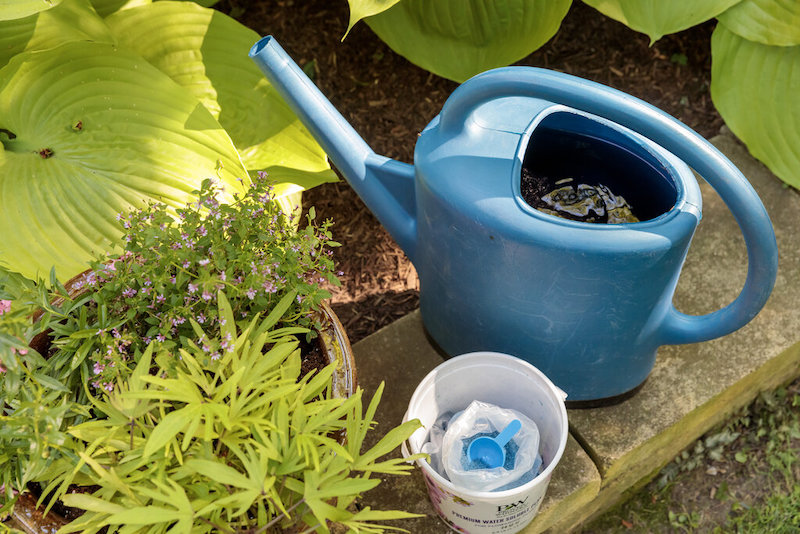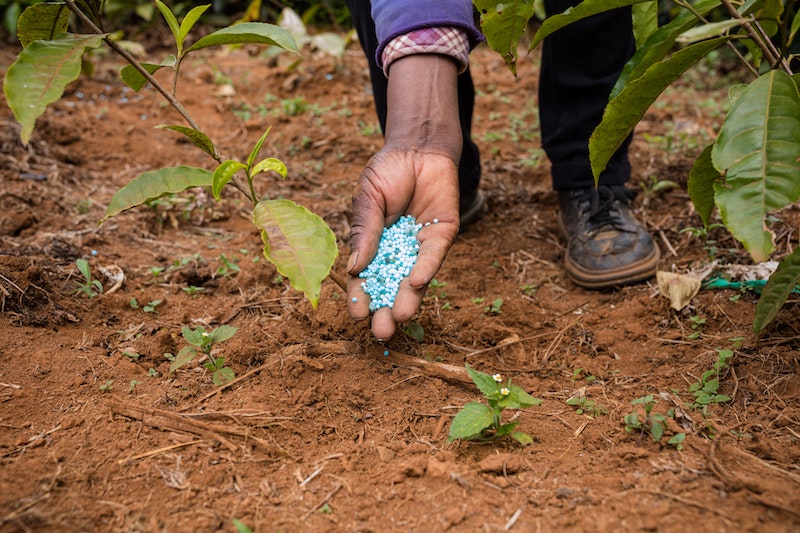Annuals are plants that flower, set seed, and die all in the same growing season. As a result, these plants require a regular fertilization schedule to keep them healthy and thriving. Fertilizing with slow-release or extended-release formulations makes this task easier, although this may not be the right course of action for all annuals. We recommend fertilizing annual plants intended for consumption, such as vegetables, herbs, and edible flowers, with organic feeds, strictly following the manufacturer's instructions.

How to Fertilize Annuals
Many annual plants prefer neutral to alkaline soil, although a significant number will grow best in acidic soil. Simple pH kits from home and garden centers will reliably give you an idea if your soil is more acidic or alkaline, making it easy to either grow plants that prefer your pH level or to amend the soil to grow a wide range of other plants. Dry fertilizers can quickly burn tender foliage and shoots and must be kept off the plant. Only apply granular fertilizers to the top 1-2 inches of soil around the plant's root zone. Lightly scratch the food in and water the plant as usual. Some nutrients will be washed down near the roots every time the plant is watered. Diluted liquid fertilizers are great for feeding container-grown plants in pots on a deck or hanging baskets. Mix the fertilizer in a watering can according to the manufacturer's instructions and water the soil to saturate the root zone thoroughly.

Best Time To Fertilize Annuals
Fertilize when the plants are first potted up in containers or planted into the ground of an existing garden bed. This initial feeding will help the annual plant establish quickly with little transplant shock. Vegetables in the garden need fertilizing every two weeks until flowers appear. Once the fruit or vegetables begin to form, stop fertilizing and continue with a regular watering schedule. Fertilizing is best done in the early morning, before the heat of the day sets in. Any foliage that gets wet will have a chance to fully dry before sundown, resulting in less of a chance of attacks from pests and diseases.
Best Fertilizer For Annuals
Slow-release and extended-release fertilizers formulated for blooming and root support are ideal for annual plants. These formulas contain an NPK ratio close to 1-4-2, with higher phosphorous and potassium than nitrogen. Espoma Organic Flower-tone and Dr. Earth Organic Bud and Bloom Fertilizer are certified organic products that will boost the rooting and blooming of any annual plant.
Annual Fertilizing Tips
- Use a slow-release fertilizer for season-long feeding.
- Choose fertilizers with an NPK ratio of 1-4-2 or similar for annuals.
- Fertilizers that have the OMRI symbol are certified to be organic and safe for use on edible plants.
Warnings
-Always wear protective gloves and a face mask when handling chemical fertilizers.
-Closely follow all directions and storage guidelines that are on the fertilizer label.
 |
Author Robbin Small - Published 4-3-2023 |
